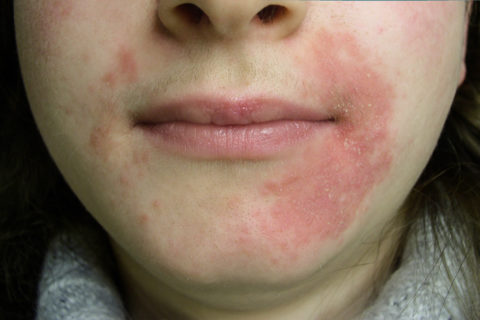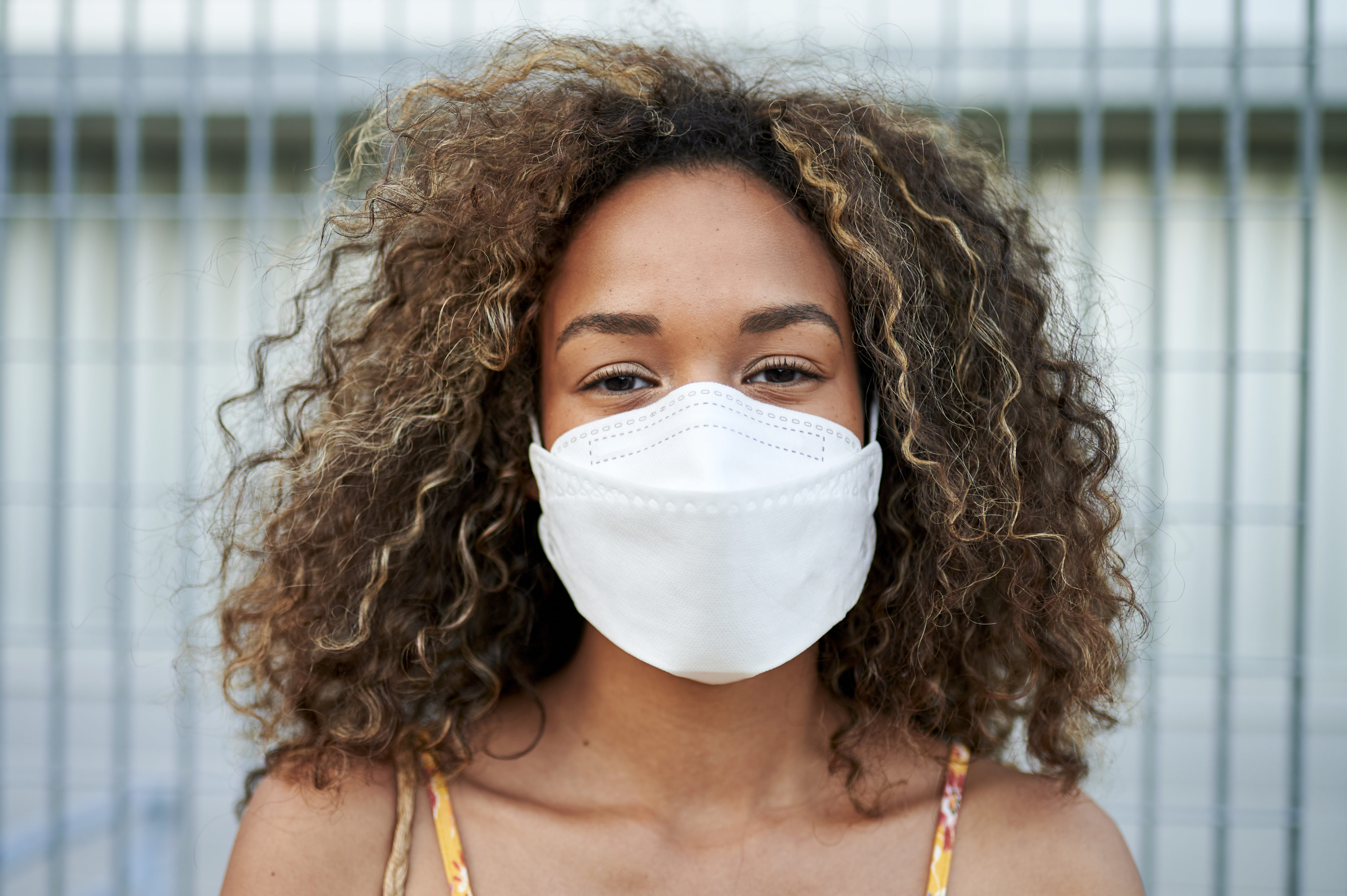F.J. Jimenez/Getty Images
You could be treating one when you actually have the other.
If we’d told you a year ago that the word maskne would soon become a regular part of your skincare vocabulary, you probably wouldn’t have believed us. But as it turns out, a staggering 12 months later, the very 2020 skincare condition remains a common concern for many of us. Now that face masks have become a normal part of our lives, so has maskne (i.e. acne lesions that pop up in the areas that masks cover, due to inflammation, friction, irritation and/or trapped sweat and heat). And as such, we’ve learned to properly treat it.

Or have we?
Dr. Dennis Gross, New York City board-certified dermatologist, celebrity go-to and founder of the beloved skincare brand of the same name, says he’s seen a massive spike in patients coming into his office thinking they have maskne when they actually have something else: maskitis.

We caught up with Dr. Gross to learn the difference between the two, and most importantly, how to diagnose and treat maskne and maskitis.
What are some of the ways someone can identify whether they’re dealing with maskne or maskitis?
“You can identify each condition visually: maskne is acne that forms around the mouth and nose caused by COVID-19 protection such as face masks or shields, while maskitis appears as small bumps — but not acneic — and can also appear on skin that is not under the mask,” explains Dr. Gross. “I have seen countless patients come into my practice thinking they have maskne when they actually have maskitis. For treatment, they are reaching for acne products which is causing further irritation and inflammation. Instead, they need a product that is soothing, decreases inflammation and rebalances skin.”
What exactly is maskitis and how is it treated?
“Maskitis is a skin rash, marked by small bumps, redness, inflammation and dry, flaky skin caused by COVID-19 facial coverings. Niacinamide is the perfect ingredient to treat maskitis because it’s incredibly soothing. It reduces redness and inflammation and improves lipid barrier function which helps restore moisture.”
Is there a genetic component to these skin conditions?
There sure is! “Those who suffer maskitis typically have a gene variation for dry, reactive skin and are likely prone to dermatitis and eczema,” according to Dr. Gross. “Similarly, those who experience maskne typically have oily, acne-prone skin.”
Are acne treatments still the best method of treatment for maskne? Are there any ingredients in particular to look for?
“Acne treatments are the best way to treat maskne, however not all acne treatments are created equal. To tackle maskne, look for products that use a combination of strong, fast-acting ingredients with soothing and hydrating ones,” advises Dr. Gross. “For example, salicylic acid is great to decongest pores, azaleic acid to regulate oil chemistry, farnesol to kills acne-causing bacteria, and soothing ingredients like green tea and aloe to sooth inflammation and redness. Stay away from products that have benzoyl peroxide — it can be harsh on the skin and cause further irritation.”
Are there ways to prevent maskitis and maskne? Are the methods of prevention different?
“Unfortunately, as long as we’re required to wear face coverings, there is no real way to fully prevent maskne and maskitis,” says Dr. Gross. “However, you can treat both conditions and take steps to alleviate inflammation and irritation. For example, in the morning, wash your face with a gentle cleanser and lukewarm water. Afterwards, apply the remainder of your skincare routine — serum, eye cream, moisturizer and SPF — but only to the areas of the skin uncovered by a mask. It’s important that there’s no product or makeup under the mask because this will cause further irritation. Once you take off the mask, again wash your face with a gentle cleanser and lukewarm water and then use your acne treatment for maskne or niacinamide serum for maskitis.”
Of course, if you’re still unsure if you’re dealing with maskne or maskitis, it’s always a good idea to book a consultation with a board-certified dermatologist near you.
